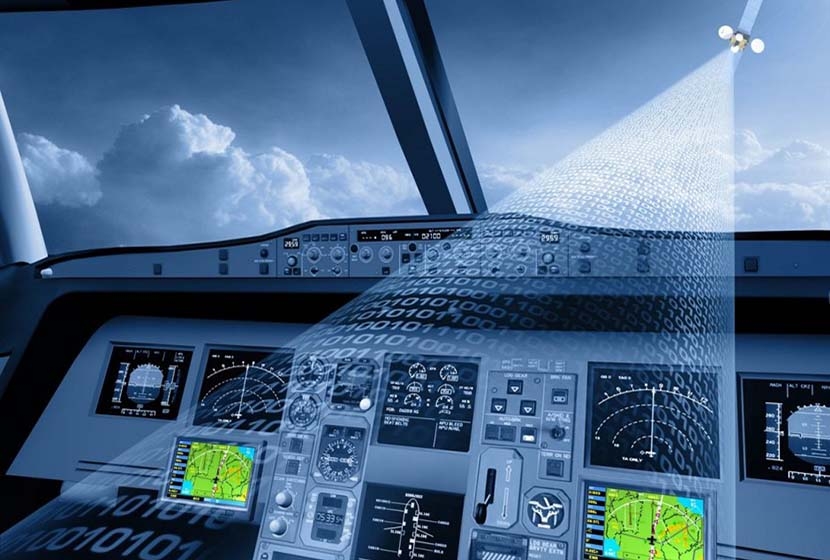Pilot Physics: Standard (1 Day)
A must do course for those who have never attended a formal PPL ground school course or are weak at maths.
Who is this course for?
Our Standard Pilot Physics course is specifically designed for those who have attained an O-Level or GCSE physics qualification within the last 5 years, at grade C (the new level 5) or above. It is also suitable for those who have taken our Basic Pilot Physics course. In a nutshell, if you’re familiar with the concept of a force, gravity, Newton’s laws of motion and know the difference between airspeeds, but don’t know anything about electromagnetism or Ohm’s law, then this course is for you!
The standard course is particularly useful for those about to embark upon their ATPL ground school, particularly if you passed your PPL ground exams by attending a formal PPL ground school course and/or learnt the material from the books and the required basic physics techniques.
If you’re changing career to become an Airline Pilot and left school many years ago, this course is most definitely for you. Whether you’re studying towards your new career on a part-time distance learning basis, or as part of a full-time integrated course, you must make sure your physics is to a high enough standard. It’s a lot of money down the drain when you discover you can’t keep up in the ATPL classes and consequently having to withdraw from the course, or, fail the exams. Start the course with confidence and be ahead of your competition.
Why do I need to study this?
Contrary to popular belief, Pilot Physics isn’t dry and boring. We don’t teach you physics for the sake of it like some Pilot Physics courses do. We teach you the physics that you’ll actually need in real life to be a safe and competent aviator, as well as the physics you’ll need to pass your ground exams.
Relying on electronic Flight Planning tools can be dangerous as you have no alternative method to compare and check your results. By simply using electronic aids and software, you won’t be able to pass the more difficult PPL or ATPL exams either, such as Navigation, Flight Performance & Planning, Principles of Flight, Aircraft General Knowledge & Meteorology.
Where should I study Pilot Physics?
If you’re about to commence a PPL or ATPL course, the course providers nearly always assume that you have an adequate background in physics. The trouble is, they rarely define what ‘adequate’ means and often refer you to third party books and computer based training that includes material that is just not relevant for Pilot training, thereby wasting time and money.
Please also bear in mind that many flying and ground instructors are not qualified teachers either. That’s not to say that they cannot teach you anything, but there is a fundamental difference between an instructor and a teacher. Teachers usually have a university degree in a specialist subject and then complete a teacher training course over one or more years and are well versed in different learning styles. Flight Instructor courses do not have any specific entrance requirements and only include 5 hours of classroom based instruction on the 30 hour course that they attend. This is one of the primary reasons that many schools do not offer ground school courses, particularly in physics. So, come to The Great Circle for your Pilot Physics course. We’ll ensure you’re adequately prepared for your pilot training journey from start to finish. It’s your time, it’s your money, get it right first time and train with us.
Who will teach me?
All of our courses are delivered by extremely talented, patient and enthusiastic instructors who are both qualified teachers with Maths & Physics Degrees, and professional pilots with a wealth of operational flying experience. We care about your needs and tailor our courses to your particular learning style.
What will I study on this course?
You will study the physics that enables you to perform the basic calculations required for every single flight you operate. Course content includes:
Charge: Electricity and Magnetic Fields.
Electrical Energy: Aircraft Batteries, Effects of Connecting in Series & Parallel.
Current, Voltage & Resistance: Definitions, Low Volt Warning Lights & Alternators.
Ohm’s Law: The relationship between Current, Voltage and Resistance.
Ammeters & Voltmeters: Measuring Current & Potential Difference.
Electromagnetism: Electromagnets and the Magneto.
Certificates & References
Upon completion of our Pilot Physics courses, you will be provided with a certificate of attendance. Should you wish to be formally assessed at the end of the course, your examination mark will be added to your certificate if you choose. Please note, formal end of course assessment is purely optional.
We also provide a reference service for those applying for sponsored training and jobs with airlines, our previous clients have found this invaluable. Our courses have literally meant the difference between sponsorship and having to self fund training for some of our clients. Where to stay and eat!
Where to stay and eat!
Think Maths & Physics aren't important when learning to fly? Read our article 'Do you have to be good at Maths & Physics to be a Pilot?' We donate a proportion of your course fee to the Yorkshire Air Ambulance.
We donate a proportion of your course fee to the Yorkshire Air Ambulance.

Course Overview
Structured, high quality lectures covering all aspects of Pilot Physics.
Syllabus

- Charge
- Electrical Energy
- Current & Voltage
- Resistance
- Ohm's Law
- Electromagnetism

Special Offer
Enrol for our 5 day Pilot Maths & Physics course and get 2 hours free post-course telephone support! Save money and time, pass your Ground School exams first time with confidence!
Course Dates:
Bespoke Courses
Dates to Suit!
Contact Us
Course Price:
£499.00


